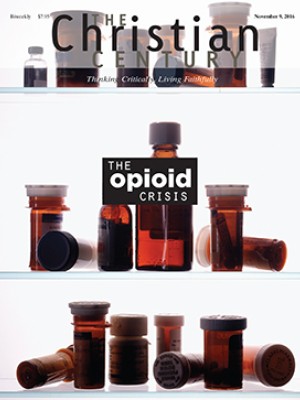November 27, First Sunday of Advent: Isaiah 2:1-5; Matthew 24:36-44
While we're preparing for Jesus' birth, these texts talk about getting ready for the Second Coming.
I am very good at meeting deadlines. So good that in certain situations, it can be a problem. My wife complains that we are always the first to show up at social gatherings. Even when we are intentional about being fashionably late, we still arrive too early.
These essays were due in September, and I met the deadline with time to spare. I began preparing them on July 18, the first night of the Republican National Convention. At the time, the news headlines were dominated by slogans like “Black Lives Matter,” “All Lives Matter,” and “Blue Lives Matter.” Black men had been shot and killed by police officers in Minnesota and Louisiana. Law enforcement officers were shot and killed in Dallas and Baton Rouge. Innocent civilians were massacred in Orlando and Paris. The Rio Olympics produced its share of victories and scandals. The stock market was jittery, employment rates stable. It felt like an extraordinary time. It took place during Ordinary Time.
Read our latest issue or browse back issues.
And now Advent arrives. Like the first wintry storm, Advent abruptly disrupts our lengthy season of Ordinary Sundays. It presents a sharp contrast to the things that have become normal to us. We have settled for our current reality, gotten too comfortable with it. We are dangerously close to accepting the ordinary as normative, and then Advent comes and shocks us.
This week, as on the first Sunday of Advent in other years, the lectionary texts capture this theme of disruption. Matthew cites two figures for judgment: the contemporaries of Noah, and the owner of a house that is about to be robbed. They are not condemned for gross sinfulness. They are judged, rather, for settling too comfortably into business as usual. They seem resigned in their assumption that nothing will change, at least not soon. This assumption brings with it the risk of accepting politics as usual, of accepting lies as truth, of complacency in the face of injustice, of recklessly blaming victims and outsiders. Such a mind-set often leaves us completely unaware of the precariousness of our position. So our Advent texts serve their purpose. They shock us out of our complacency, wake us up from our resignation to the status quo.
And it’s important to remember, when we read these texts, that Jesus has already come. Advent is often treated strictly as a season of preparation for the birth of Jesus, resulting in the selected texts being read and interpreted in terms of the first coming. But these are apocalyptic texts—and if we read them that way, they challenge us to expect and prepare for the second coming, the return of Jesus. Yes, the Lord is coming back, and he will not be pleased with everything he finds. The question, in the meantime, is how we will live in these ordinary times.
These texts intend to wake us up, to disrupt our comfortable, ordinary season of life. Matthew reminds us that our current reality—“eating and drinking, marrying and giving in marriage”—will not put us on the side of the sheep, on the good side of Christ’s final judgment. Isaiah’s prophecy is shockingly bold: “They shall beat their swords into ploughshares, and their spears into pruning hooks; nation shall not lift up sword against nation, neither shall they learn war any more.” The degree of shock is measured by how deeply our current and ordinary experience of reality has taken root.
This is God’s word for us on the first Sunday of Advent. Advent signals the hope and possibility of a fresh start, a resetting of our default mode. It is our born-again experience. Isaiah condemns the royal city of Jerusalem, the locus of national and religious pride. The earth will be transformed from battlefields to gardens, and instruments of war will become tools for production.
I’m writing this in ordinary time, and I don’t know who will be our next president. That question will be answered by the first Sunday of Advent. But other unanswered questions hang over us. How many more killings of black people and law enforcement officers will there be? Where will terrorists strike next? Which of our loved ones will suffer illness and die—and who will be born in our midst? Who will lose their job, and who will welcome a new opportunity? What creatures or languages will go extinct? Which nations will find peace and which will engage in new conflict? What environmental disaster will befall due to climate change?
Whatever our circumstance, the Word of God remains the same. So does our resurrection hope, eternal and unchangeable. Advent is about the transformation of our hearts for the way we live our ordinary, everyday lives. This week’s Gospel reading comes from a long speech, Jesus’s last one in Matthew. At the end of it, Jesus explains with unmistakable and ineluctable clarity that when the Son of man returns, we will be judged on how we tended to the hungry, the thirsty, the stranger, the naked, the sick, and the imprisoned.





